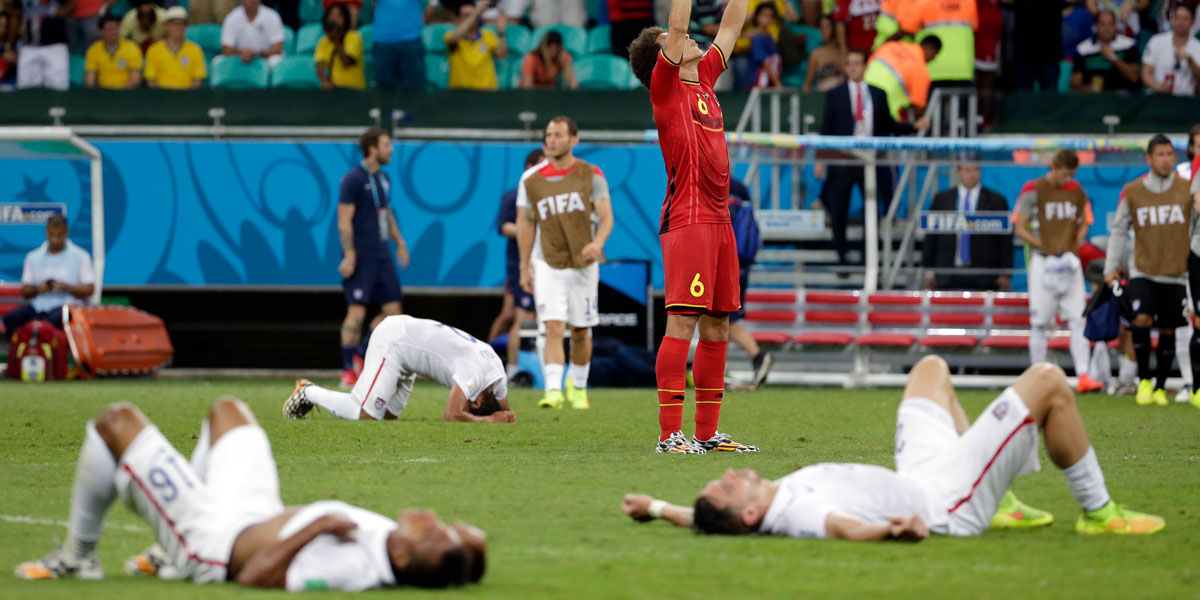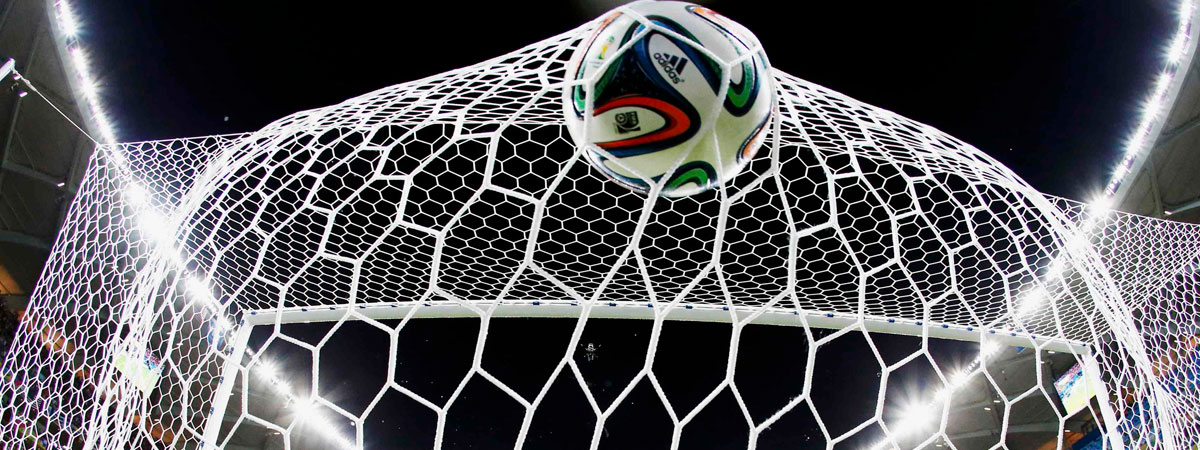With England’s thriller going to extra time, what can teams do to overcome the increased fatigue and stress of that extra 30 minutes?
 Footballers exhausted after suffering defeat in extra time
Footballers exhausted after suffering defeat in extra timeENGLAND’S shootout victory against Colombia was the latest World Cup knockout game to go into extra time – and pundits noted how, as ever, the 30-minute period placed extra physical demands on the players, as well as affecting their ability to execute skills such as passing and dribbling. What can be done to give teams a winning edge when a deadlocked game has a gruelling further 30 minutes added? Research at the University of Huddersfield has been finding out.
Carbohydrate gels and caffeine-infused chewing gum are possible solutions. The five-minute window before extra time begins is crucial, but teams might also have to develop better nutritional strategies that cover the period before kick-off and the half-time break.
The problem in maintaining performance during extra time has been a major research area for Dr Liam Harper, Senior Lecturer in Sport, Exercise and Nutrition Sciences at the University. It was the subject of his doctoral thesis and he has authored a succession of articles that deal with extra time and a wide range of related topics. He is unsurprised that 50% of the knockout matches so far have required extra time.
“Four years ago in Brazil, half of the knockout games went to extra time – the highest number ever and it will probably be pretty similar this year,” said Dr Harper. This is because the overall quality and competitiveness of teams is improving, he added, but it is observable that the extra 30 minutes leads to a drop-off in physical and skill performance.
Football fatigue
Among Dr Harper’s articles is “Technical Performance Reduces during the Extra-Time Period of Professional Soccer Match-Play”. It quantifies a reduction in the number of successful passes and dribbles in 18 matches involving professional European teams. This potentially shows that players are less likely to be involved in their team’s build-up play during extra time compared to during the first two 45 minute halves.
“We have looked at a lot of the physiological responses to explain this and the main one is a change in energy substrate use. Typically, towards the end of a 90 minute game you start to reduce the amount of muscle glycogen (stored carbohydrate). So it is likely this reduces further during extra time. Muscle glycogen stores are the source that contributes most to high-intensity running and sprinting, which is crucial to successful performance in football,” said Dr Harper.
“When you get into extra time you start using fat as a fuel more predominantly, which is not as effective for those bouts of higher-intensity running. When you deplete energy sources you are going to rely on ones that aren’t as efficient and that’s probably one of the reasons why there is a drop-off in performance. However, there are a number of factors that may contribute to this, such as self-pacing by the players the environment, and the current score line amongst others.”
Dr Harper and his colleagues have worked with a number of leading UK clubs. For example, there was a collaboration with Barnsley Football Club that appraised the performance and rate of recovery of players who took part in the full duration of three games – including one that went to extra time – within a week.
During a study with Sunderland Association Football Club’s academy, young players were given carbohydrate gels in that five-minute break before extra time.
“We found that dribbling accuracy improved but we weren’t able to rescue reductions in physical performance. One of the reasons is that we didn’t give them any carbohydrate at half time or during the warm-up either, so more research around nutritional strategies targeted towards potentially playing extra time is required” said Dr Harper.
Story continues below...
 Football hitting the back of the next
Football hitting the back of the nextMore Stories
Prof harnesses mental toughness
You can’t make somebody taller, but you can give them a step ladder
Russia 2018 and England 1966… history repeating?
Research by a historian compares the build-up to Russia 2018 with England’s own hosting of the games in 1966
Chinese students welcome Year of the Dog at footie
The University’s Chinese students combined with Huddersfield Town FC and its Chinese sponsors OPE to celebrate the Chinese New Year
